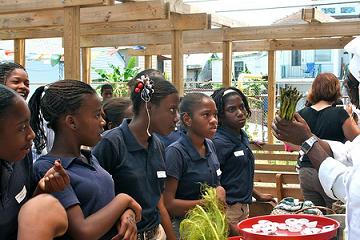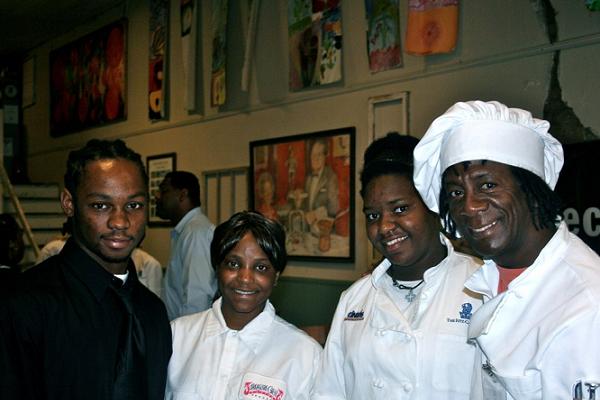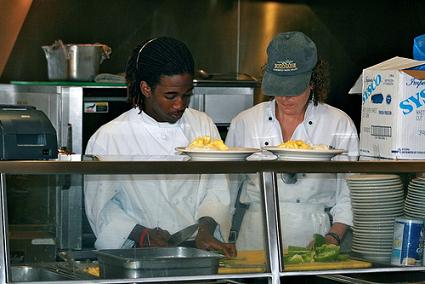Teens at New Orleans’ Cafe Reconcile stay off the street, get skills, and–hopefully–get a job. Photo: Francisco Collazo
EXOTIC CUISINE, celebrity chefs, and Michelin starred restaurants may seem a world away from violent misfits and underpaid government staff of juvenile correction facilities. However, distant worlds are rapidly colliding. Fed up with ineffective government interventions, the culinary world is taking charge by bringing innovative at risk teen programing from the back kitchens of bakeries and culinary schools across America to the country’s “correctional” facilities.


